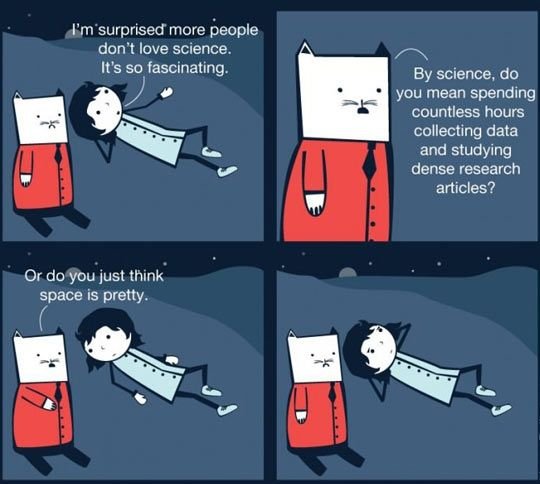I think you have it a bit upside down. How science is used in general discussion is a completely other thing than trusting science in general. Psychology, sociology and other soft sciences are hard to prove, have the problem that bias in many forms can and do affect the outcome. But that is simply a thing you have to take into consideration, especially in political discussions. But that is really just an integrated part of science. A thesis is not proof in the philosophical sense (not much is actually... See David Hume :)
Critical thinking needs empirical data, just as it need an understanding of logic and an awareness of fallacies.
What you really can criticise is this:

What I am saying is rather an extension of the picture you posted. More and more people get into science because it is simply pretty. We have created a culture of science today that revolves around public acceptance and understanding since funding is rather limited. This is how and why you get meme popularizers of science like Tyson to leading the new wave when his biggest accomplishment was to linguistically declassify an astronomical body.
I don't think psychology is part of science more than alchemy or gambling. At some point we have to accept what passes as science and what doesn't. I am a Popperian myself in regards to how the whole thing is approached theoretically and a hardcore engineer when it comes to practicality.
Meanwhile the new scientists are really just people who think science is pretty. This is why and how they pay their way into college and this is how we end up with crap research spoiling the rest. We have a science pollution that mingles between the spectrum of pseudoscience and epistemology.
OK. Then you do not have it upside down :) I agree.
Edit: Or partly agree. History, theology, sociology and psychology is still Science. You just have to remember that bias and fallacies are part of the fabric of every thesis in these fields, whereas connecting mathematics and empirical observation is less prone to that problem.